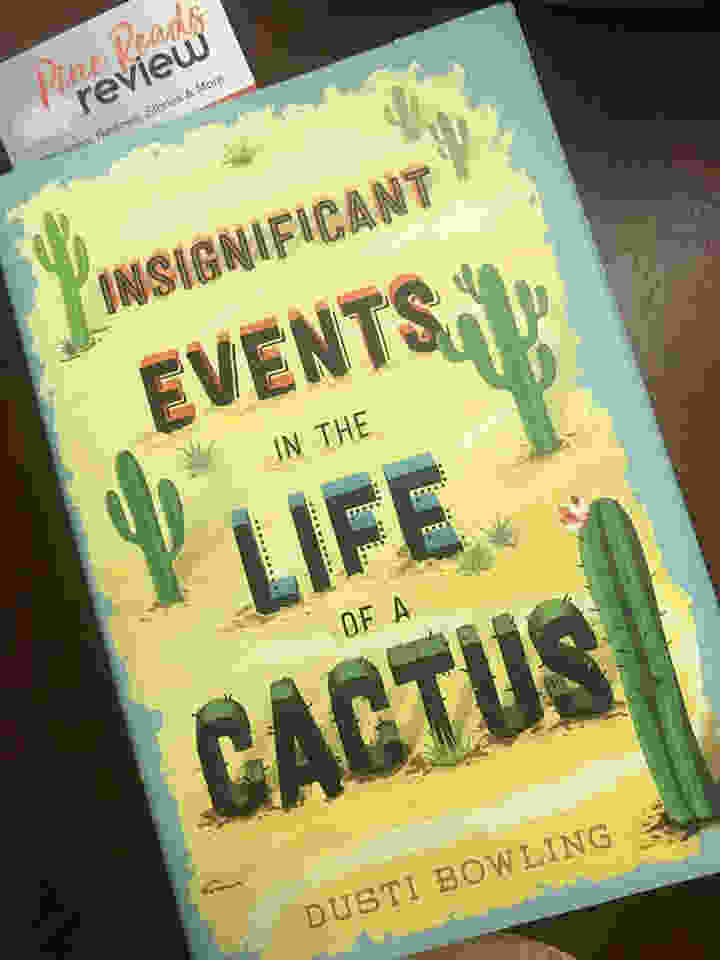
Moving schools for a 13 year-old is difficult enough as it is, but imagine moving to an entirely different state where you don’t know anyone AND to top it all off you are missing both your arms?
Dusti Bowling’s middle grade novel, Insignificant Events in the Life of a Cactus, tells the story of Aven, a girl born without arms who never lets her “lack of armage”, get in the way of playing sports, guitar, or anything else she sets her mind to. However, when her dad gets a new job managing a theme park in Arizona she has to leave behind her friends in Kansas and start over in a new school.
Reading about how difficult early adolescence years can be for people with disabilities was heartbreaking. Not only are they are dealing with all the changes that come with transitioning from being a child to becoming a teenager, but also with the fact that many of their peers view them as different or even “freaks”.
According to the stompoutbullying.org, kids with special needs are a higher risk of experiencing bullying at school. With a lot of it stemming from other students not having enough exposure or education to certain disabilities or conditions. Which got me thinking; why aren’t most school taking the steps necessary to educate children from an early age about different types of disabilities and/ or conditions?
Personally, I never received any type of lesson in grade school about the different disabilities kids may have and the importance of trying to integrate them with everyone else. Now looking back at it I found it to be extremely unfortunate, because I do believe that if I would’ve been educated on this subject, I could’ve done more to help certain kids that I went to school with feel more welcome. For instance, when I was in middle school there was a girl who would always speak out of turn, make noises during reading time, and even run from class to class at times. Everyone knew she had a some sort of disability, but no one ever took the chance to find out what it was, myself included, and teachers never explained it to us. So, many of my classmates would make fun of her and make jokes during class, which the teacher would condemn but not take the time to explain to the class that she could not help what she was doing.
In Bowling’s novel, Aven befriends Connor, a boy who suffers from Tourette’s syndrome, which is a neurological disorder that causes involuntary motor or oral tics. So, sometimes Connor would spit out his food when eating or start barking in the middle of his sentences or at people. His classmates didn’t give him the opportunity to explain his tics and just thought he wanted attention, causing him to become isolated from everyone else. Luckily, Aven comes along and they form a special bond, and although some of their peers refer to them as freaks, they don’t care because they finally have someone with who they can identify with.
This brings me back to the story of the girl I went to middle school with, she did not have anyone to really call a friend in school and thinking about how much she could’ve used someone to be there for her makes my heart ache. Which is why I believe that schools need to start taking the steps necessary to teach children how to integrate special needs students with the rest of their peers.
Bowling does an amazing job at depicting different disabilities that are not often talked or written about. Through Aven’s character, who is funny, energetic, witty and spontaneous, Bowling opens the reader’s mind to start thinking about a subject that may be difficult for many people to talk about.
Although, it is not a change that will happen overnight little by little we can start changing the stigma there is, especially among children and teenagers, about people with disabilities. Schools need to make it a priority to teach their students that just because someone acts or looks different doesn’t mean they should be looked as abnormal and made fun of. We are in a day and age where not being the same should be welcomed and not stigmatized.
PRR Writer, Michelle Sanchez